Hungarian defence minister: ‘Blackmailers’ failed to thwart operation of Defence Purchase Agency

“Blackmailers” have failed to obstruct the work of the Defence Procurement Agency (VBU), the defence minister told parliament’s defence and law enforcement committee on Tuesday, adding press reports suggesting that procurements had faltered as a result were wrong.
Hungarian defence minister talks about ‘blackmailers’
Socialist lawmaker Tamás Harangozó and Jobbik MP László György Lukács initiated the hearing of defence minister Kristóf Szalay-Bobrovniczky and Norbert Tajti, the director-general of the Military National Security Service, pointing to press reports that the VBU had suffered an “unprecedented attack constituting a severe risk to national security”. Harangozó complained that the committee had not been briefed on the attack.
Fidesz MP Lajos Kósa noted that the national security committee has been briefed on the case.
Szalay-Bobrovniczky said that cyberattacks were a frequent occurrence, and the group that attacked VBU had recently obtained similar data from the authority’s Czech counterpart. As an independent company, VBU is responsible for the security of its own IT system, which was not connected to that of the Armed Forces, the Defence Ministry or the Military National Security Service, he said.
This, the defence minister added, was a guarantee that no data pertaining to military capacity or national security had been divulged.
An assessment of the exact data stolen is under way, he said, adding that the data on procurements leaked so far had been in the public domain before the attack.
“The government neither negotiates with criminals nor pays them,” he said, adding that an international investigation is under way. He noted that he had also launched an inquiry and removed the then-head of the agency. The new head of VBU, Major General Attila Simon, has a background in special operations, he added.
Read also:
Hungarian opposition Jobbik urges health-care finance reform

Opposition Jobbik has called for the reform Hungary’s health-care financing system with the aim of speeding up access to better quality services.
Jobbik calls for reforms
László György Lukács, the party’s deputy group leader, told a press conference on Monday that under the current system waiting times for treatments were too long, forcing many patients to pay out of their own pocket for private treatments that they were otherwise entitled to in the state-run system.
Jobbik proposes introducing a personal social insurance account so that people can decide for themselves whether to use a private health-care provider in cases where treatments are unavailable or would take longer than average to access using a state provider, he said.
The social insurance sum in question would cover the cost of an equivalent treatment provided as part of the state health-care system, he said.
Jobbik is launching a debate among professionals and politicians on “making the social insurance contribution transferrable”.
Read also:
New public holidays wanted in Hungary
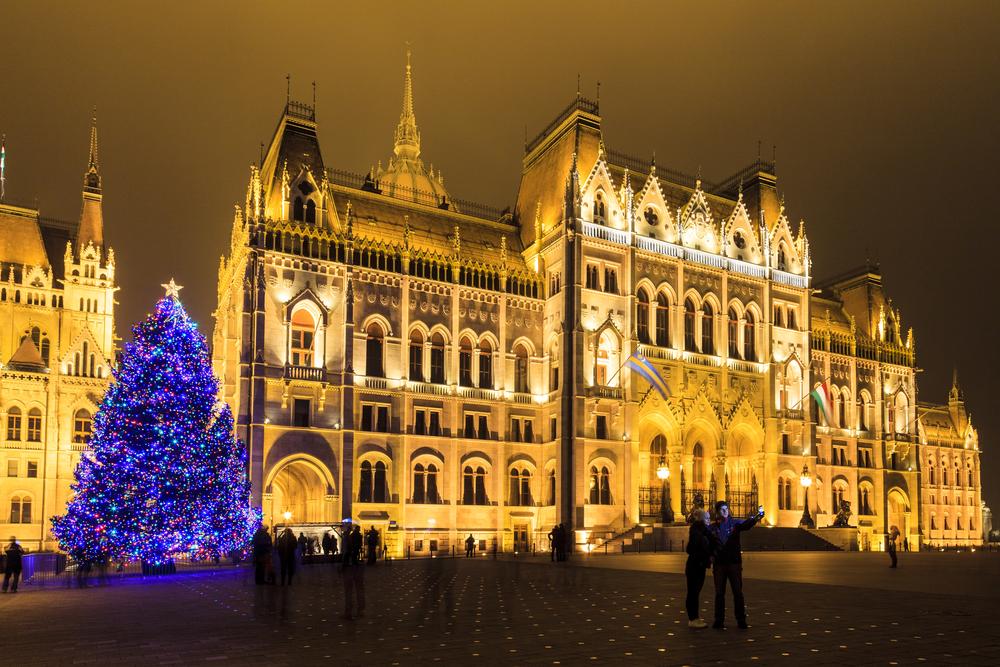
Hungarian society has long been waiting for 24 December to become a public holiday in Hungary, like in seven other European countries, says Péter Balassa, Member of Parliament, who has again submitted a legislative amendment proposal to this end.
Péter Balassa (Jobbik) proposes an amendment to Act I of 2012 on the Labour Code to make Christmas Eve a public holiday.
There are currently public holidays in Hungary:
New Year’s Day – 1 January
1848-49 Revolution and War of Independence – 15 March
Good Friday – Easter cycle
Easter Monday – constantly changing date
Labour Day – 1 May
Pentecost Monday – constantly changing date
State Founding Day – 20 August
56th Revolution Day – 23 October
All Saints Day – 1 November
Christmas Day – 25 December
Christmas Day – 26 December
According to Péter Balassa’s proposal, Article 102(1) of Act I of 2012 on the Labour Code would be replaced by the following provision:
(1) Public holidays: 1 January, 15 March, Good Friday, Easter Monday, 1 May, Whit Monday, 20 August, 23 October, 1 November and 24-26 December.
In justifying his proposal, Balassa pointed out that
in December 2023, several retailers—mentioning only the biggest ones, such as Lidl, Rossmann, and Penny—backed the initiative, allowing their employees to spend Christmas Eve with their loved ones and families.
In fact, it is probably only a matter of time before the government proposes a resolution to declare 24 December a public holiday, which will be adopted as a proposal of its own. In Hungary, shops are rarely open on Christmas Eve, and usually only until noon, and public transport also switches to public holiday mode in the second half of the day, so it is, in effect, an unrecognised but official for many people public holiday.
read also: Here’s when one of the world’s most beautiful Christmas fairs will open in Budapest!
Government response to the new public holiday
This is the fifth time the proposal has been repeated, but the proposal to make Christmas Eve a public holiday was voted down yearly by a two-thirds majority of Fidesz, a party with Christian and conservative values.
According to the government’s explanatory statement, János Fónagy, Parliamentary State Secretary of the Ministry of National Economy (then the Ministry of Economic Development), stressed last year that All Saints’ Day was declared a public holiday in 2000 at the initiative of Fidesz, and Good Friday in 2017 at the initiative of Fidesz-KDNP.
Hungary has eleven public holidays, adding that any further increase in the number of public holidays should be carefully examined from the point of view of the economy’s capacity to cope with the economic burden.
More arguments for a public holiday
The arguments for the new holiday include that since 2017, Hungary has 11 public holidays, one day less than the EU average. Romania and Slovakia have 15 public holidays in neighbouring countries yearly, Croatia 14, Austria 13 and Ukraine 12.
According to Balassa, Fidesz’s argument that increasing the number of public holidays would weaken competitiveness and lead to a loss of GDP is not valid, since 24 December is undoubtedly the day when most of the income is generated by trade, but people can also schedule their shopping for other days, especially as shops are open practically all year round during Advent, including at weekends.
He also noted that the energy crisis is an important argument, as retail outlets’ overheads can be so high that the question arises whether it is worth keeping them open on this day.
Ultimately, this is a value choice: the government of a country that professes to be Christian should be sensitive to the need of Hungarian families to be together from 24 to 26 December. This period should be a time of peace, love, and intimate celebration,” concluded the MEP.
Last year’s opinion polls showed that
64-83% of Hungarians would support making Christmas Eve a public holiday.
Read also: CNN: Hungarian Christmas Fairs in the World’s Top
Featured image: depositphotos.com
Hungarian refugee in Russia, Béla Kovács, accuses Western media of misleading public

Béla Kovács, the former European Parliament representative of the Hungarian Jobbik party, who was sentenced to five years in prison in Hungary for espionage in 2022, has resurfaced publicly in Russia. Known infamously by the moniker “KGBéla,” Kovács fled Hungary after being convicted of passing sensitive information to Russian intelligence between 2012 and 2014, allegedly to undermine European Union institutions and favour Russian interests.
Recently, Béla Kovács made an appearance at a Moscow forum titled “I Want to Live in Russia,” which was organised by the pro-Russian media outlet Ukraina.ru, Meduza reports. Among the speakers was Maria Butina, a member of the Russian parliament, who spoke about “ideological immigration” to Russia, framing it as part of a long-standing tradition dating back to German settlers fleeing religious wars to the Russian Empire.
During his speech, Béla Kovács asked Russians not to take offence at the often negative perceptions of their country among Hungarians.
According to him, these views were largely shaped by the Western media, which, he claimed, misleads many people in Hungary about Russia’s true nature, 24.hu writes.
Fleeing justice, speaking at Russian forums
Kovács’ appearance in Russia comes as no surprise, given that last year, a second arrest warrant was issued for him in Hungary, but he has so far evaded capture. The former Jobbik politician had already been found guilty of espionage and fraudulent misappropriation of EU funds, resulting in a suspended two-year prison sentence. His sentence was further intensified by Hungary’s Supreme Court, which handed him a five-year prison term along with a ten-year ban from public office. Instead of facing his sentence, Béla Kovács escaped to Russia, where he now resides.
The forum at which Kovács spoke is closely tied to a recent decree by Russian President Vladimir Putin, who simplified immigration procedures for foreigners wishing to move to Russia as a refuge from so-called “neoliberal ideologies” in their home countries. According to reports, the program, which officially launched on 1 September 2024, has already attracted interest, though exact figures on the number of participants remain undisclosed.
Hungary’s first political refugee in Russia?
Béla Kovács is perhaps the most prominent Hungarian political figure to seek refuge in Russia in modern times. His legal troubles began years ago, with investigations dating back to his time as a Member of the European Parliament. The Hungarian courts, after initially acquitting him of espionage charges, later overturned the verdict on appeal. The Court of Appeal in Budapest found him guilty of preparing to spy on EU institutions on behalf of Russia. His crimes did not end there, as he was also convicted of budgetary fraud and forgery of private documents.
Despite Hungary’s efforts to apprehend him, including issuing an international warrant, Kovács managed to flee, and his current status in Russia highlights a growing trend among individuals seeking asylum from countries they claim are under Western influence. At the Moscow event, Béla Kovács spoke openly about his decision to relocate, aligning himself with other speakers who praised Russia as a haven from the “oppressive” ideologies of the West.
The forum’s broader significance
The forum in Moscow touched upon a broader geopolitical narrative, with several speakers emphasising Russia’s role as a sanctuary for those disillusioned with Western liberal democracies. Kovács’ presence at the event, alongside other international figures seeking to paint Russia in a favourable light, is a sign of the country’s ongoing efforts to position itself as a counterbalance to Western influence.
While Kovács’ future in Russia remains uncertain, one thing is clear: his involvement in espionage and subsequent flight to Russia marks a rare case of a Hungarian politician becoming a high-profile refugee in Moscow. Whether his situation is a one-off or a sign of deeper trends remains to be seen, but for now, Béla Kovács seems to have found a new home far from Hungarian justice.
Read also:
Not everyone agrees: Opposition slams Orbán’s controversial speech

Opposition parties have criticised Prime Minister Viktor Orbán’s speech at the Bálványos Summer University in Baile Tusnad, Romania, saying it had failed to address the problems of Hungarians.
Tisza Party’s criticism
The Respect and Freedom (Tisza) party said the prime minister’s speech had been about “Budapest-centric global politics” rather than the problems of the Hungarian people. The party criticised Orbán for failing to mention the state of the healthcare and education sectors, “the three million people living below the subsistence level and the hundreds of thousands who have fled abroad”.
Democratic Coalition’s criticism
The Democratic Coalition (DK) said Orbán’s politics wasn’t “building, but losing Hungary” and endangered the Hungarian people. “The blabber about a national strategy doesn’t obscure the strategic weakening of Hungary that is a consequence of the PM’s running amok historically and politically,” DK said in a statement.
Socialists’ criticism
The Socialist Party criticised the speech for not mentioning “the government’s misguided economic policy, the one billion euro loan taken from China, high inflation and the high public debt”. The party said it hoped the PM “was not laying the groundwork for pulling Hungary out of the European Union”.
Jobbik’s criticism
Jobbik-Conservatives welcomed the prime minister’s announcement on doubling family tax breaks for children, but said their solution would be to increase the tax break each year by at least the previous year’s inflation rate.
Read also:
Orbán believes pro-peace forces will prevail in Europe

Pro-peace forces will sooner or later become the majority in Europe, Balázs Orbán, the prime minister’s political director, told a panel discussion at the Bálványos Summer University in Baile Tusnad, in central Romania. “Time is on their side,” he said.
He told a roundtable discussion on party politics that the Ukrainian decision to impose limitations on the amount of crude to be delivered through the country by Russian-owned Lukoil was linked to “the peace mission and Hungary’s stance on the war”.
“In just two weeks we managed to make waves causing serious problems in the entire pro-war force field. There is now an alternative strategy, represented by Hungary, and to be tabled at the meeting of European heads of state and government. This is a historic situation, and Hungary has a historic responsibility to do whatever it can for peace,” Orbán said.
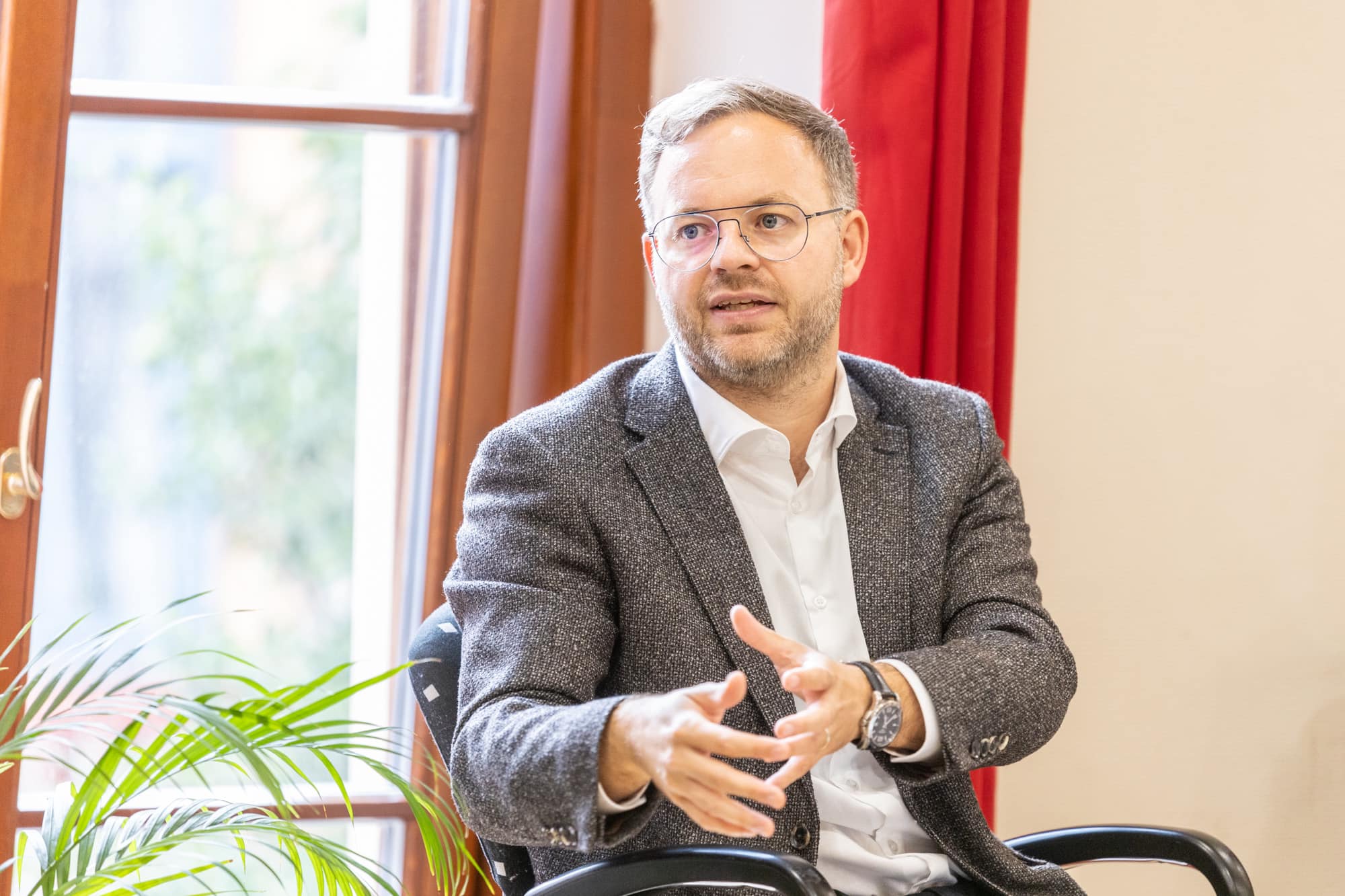
The majority of Europeans want peace, European policy must change
Regarding Prime Minister Viktor Orbán’s “peace mission”, LMP group leader Máté Kanász-Nagy said his party was pro-peace. At the same time, he said he had not seen “concrete results” of the peace mission: “I’m not sure it has brought peace closer.”
László György Lukács of Jobbik – Conservatives said the party had always stood up for “a fair peace”. “If that is the substance of the peace mission, Jobbik will support it.”
Lőrinc Nacsa of the junior ruling Christian Democrats (KDNP) slammed Jobbik, saying that Márton Gyöngyösi, the party’s leader until two weeks ago, had “voted for 17 pro-war decisions in the European Parliament”.
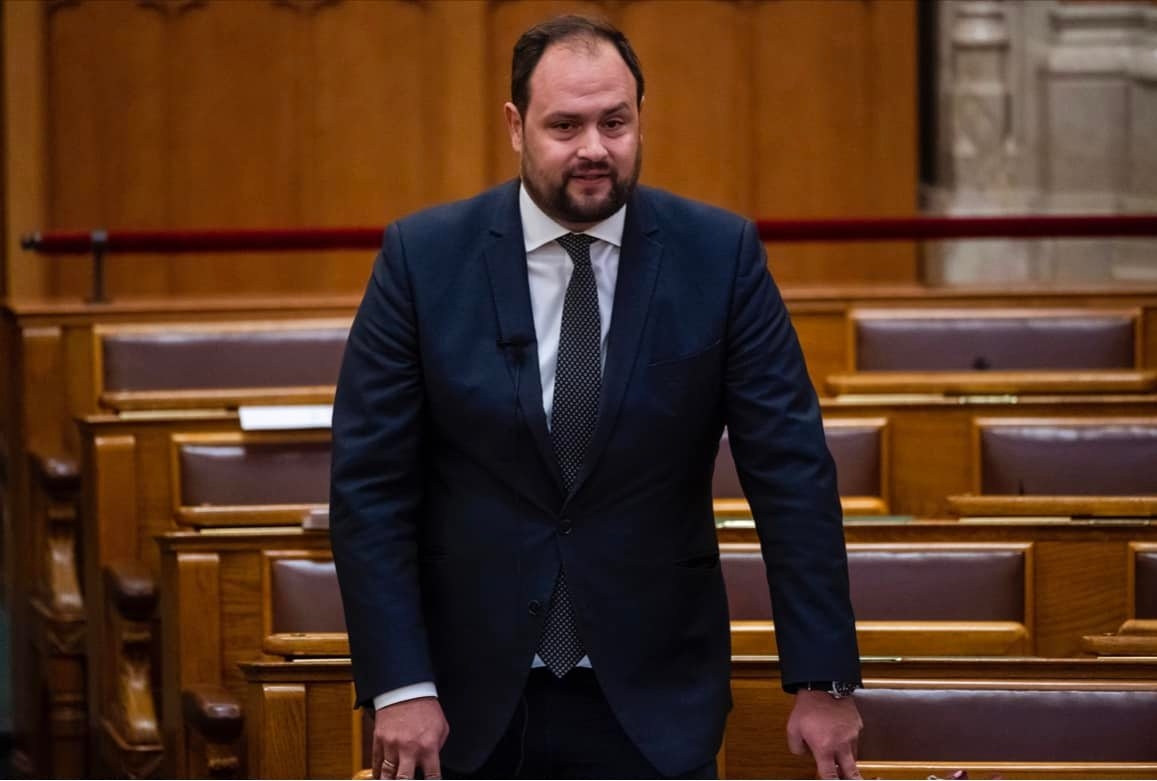
Orbán said peace was conditional on restoring communication channels. “How do they want peace if they refuse to speak with one of the [warring] parties?” The policies of the past 2.5 years “are a dead end”, he said.
He added that the Ukrainian leadership of the western Transcarpathia region of the country would be open to cooperating with Hungary, “but Kyiv is waging war; they want to beat the Russians. Due to its pro-peace stance, Kyiv politicians have identified Hungary as a political opponent,” he said.
Central Europe now has a party family in the EU
On the matter of the “quarantining” of the Patriots for Europe group in the European Parliament, Lukács said no groups should be quarantined “for their role on a political side or its opinions”. “Lots of people have voted for those forces, and what happened is not right,” he said.
Orbán said that, similarly to the boycott of the EU Council meetings during Hungary’s presidency, the step was “revenge — insignificant, petty revenge”. The European People’s Party is now “as much in lockstep with the leftist mainstream as for example the Greens are,” he said. The true “logic of power”, he said, was whether a party belonged to a party family or not. “Up to now central Europe had no party family; now it has one,” he said, adding that that fact alone would boost the region’s ability to represent its interests.
Nacsa said the European Commission should “return to its original role” and to the rule of law. Instead, the Commission “is using so-called legal tools as a political cudgel” and regularly employs double standards against Hungary, he said.
Read also:
Opposition Jobbik folklore craftsman new leader
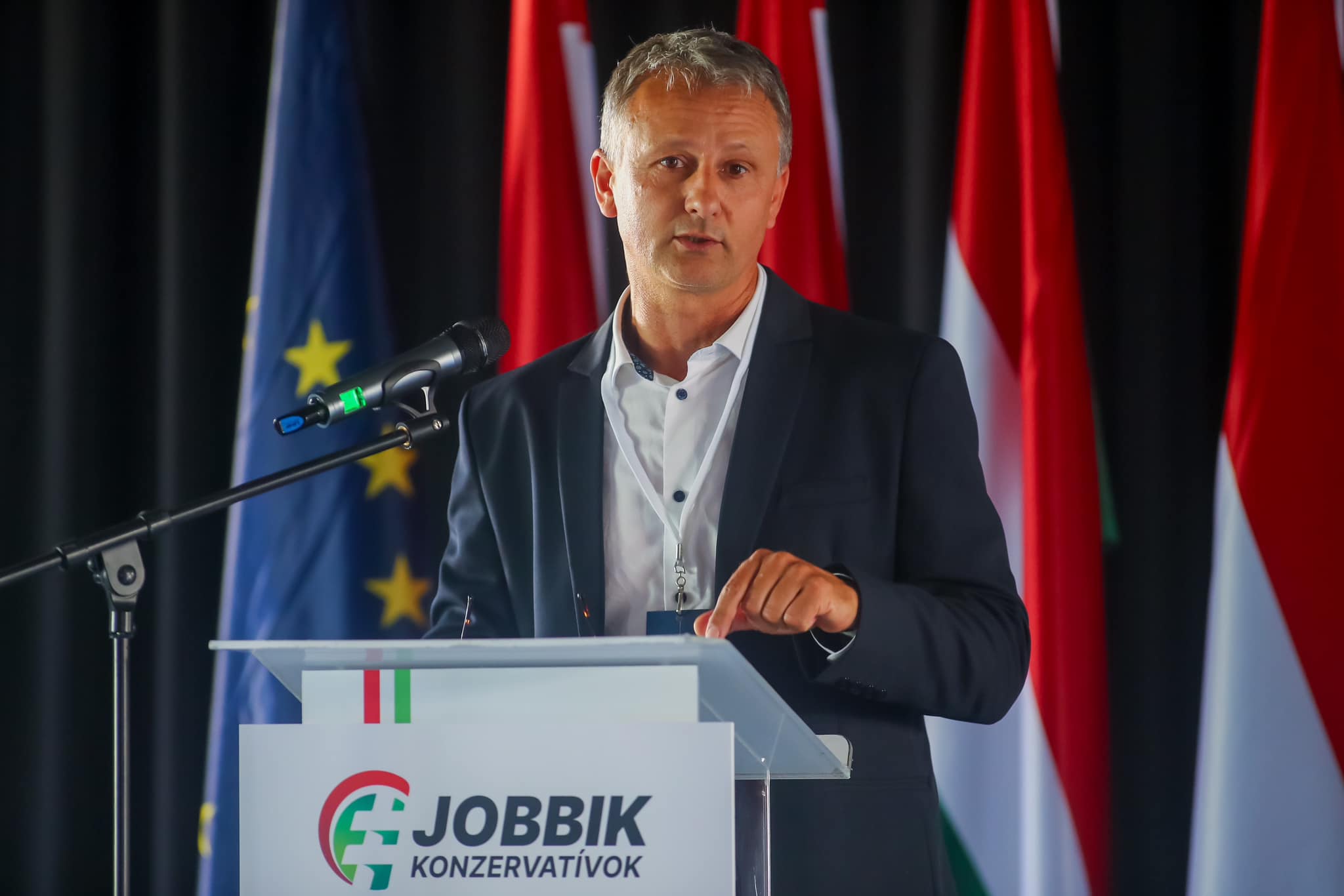
The opposition Jobbik-Conservatives have elected Béla Adorján as the party’s leader. The sole candidate won 91 percent of the votes at the party’s congress in Budapest on Saturday.
The outgoing leader, Márton Gyöngyösi, decided not to submit a declaration of intent to run, even though he had signalled his plan to do so on the night of the June 9 EP elections.
Adorján, a folklore craftsman by trade who then turned to local politics, told the press conference said the party must establish stability and return to the path it departed from a few years ago.

Jobbik, he added, must again focus on people’s everyday problems, and the leadership must bolster ties with party members and rebuild trust in the party.
Brenner Koloman was elected as deputy leader at the congress.
Read also:
- Hungary’s top court decision: he will be Budapest’s mayor until 2029 – Read more HERE
- Shocking: 19-year-old asylum seeker starved and illegally detained in a transit zone in Hungary
MiniDubai in Budapest: Opposition calls for eviction moratorium
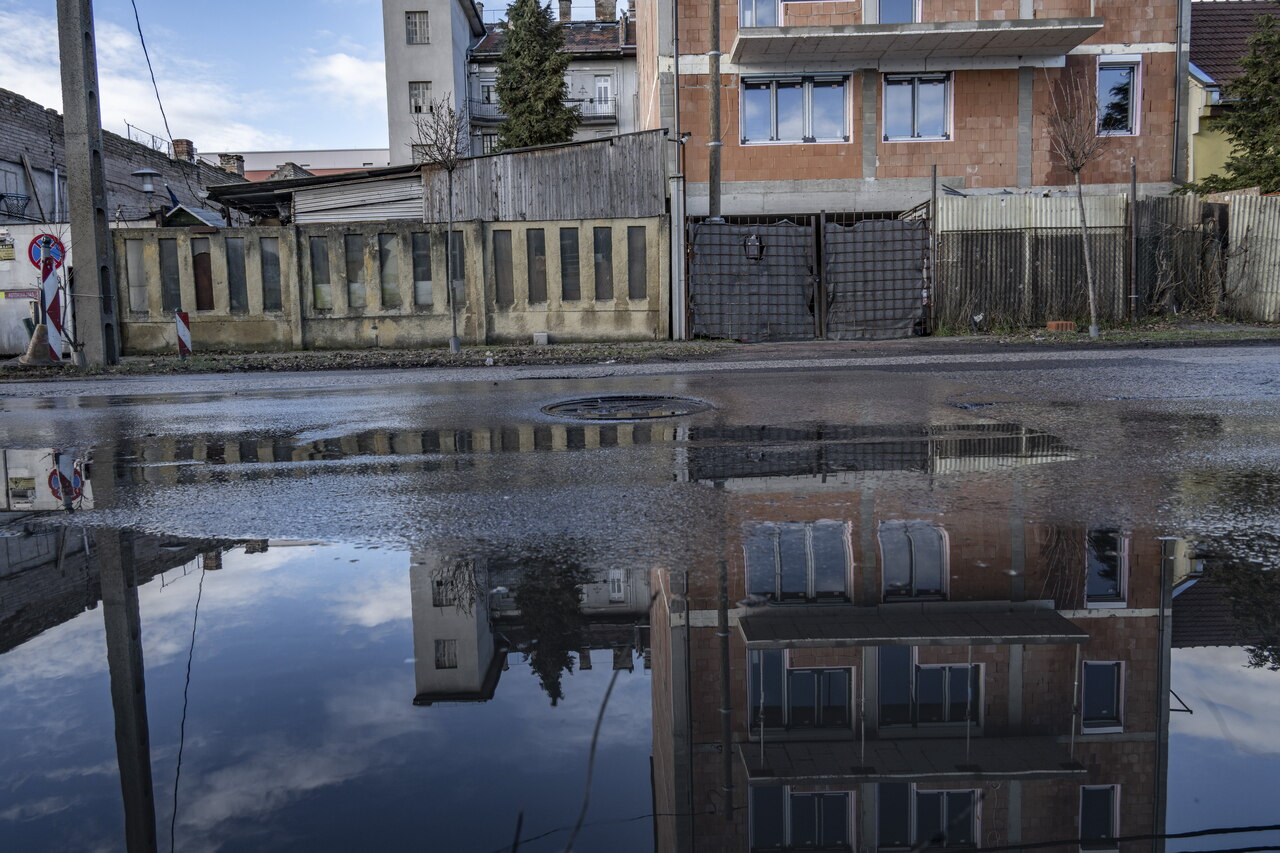
The opposition Jobbik – Conservatives have called for halting the 30-day eviction notice issued to residents living on the site of an investment project in Rákosrendező, in Budapest.
The EUR 5 billion rehabilitation project planned by UAE developer Eagle Hills would bring about the eviction from some 25 flats in the area, lawmaker Dániel Kárpát Z said, and called for a moratorium until residents can be offered flats “equivalent or of higher quality” than their present apartments.
“The procedure may be lawful but it is unacceptable that the interests of foreign investors should precede those of the Hungarian residents”, he said.
Read also:
Opposition about Fidesz presidential candidate Sulyok: Orbán’s pen, yet another Fidesz party soldier
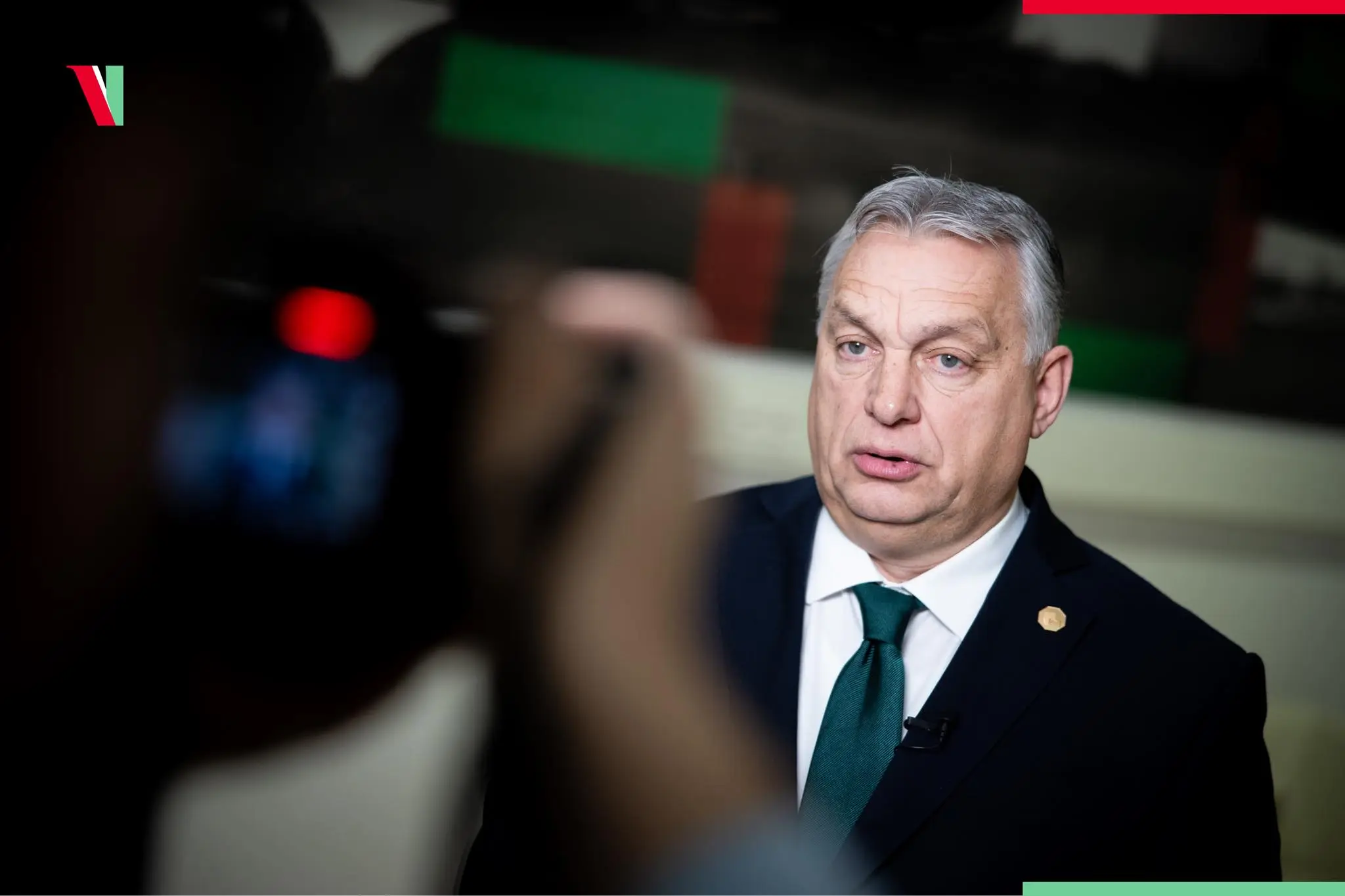
Several parties of the Hungarian opposition have said they considered Tamás Sulyok, the head of the Constitutional Court and the ruling parties’ nominee for Hungary’s next president, as a “stalwart” of Fidesz and named alternative candidates, while also urging a direct election.
The Democratic Coalition said Prime Minister Viktor Orbán “has chosen yet another Fidesz party soldier for their candidate for head of state”, and it demanded a direct presidential election.
Jobbik also urged a direct presidential election, saying: “Orbán should not decide on the nomination for president all by himself.” “The country calls for a president elected by the people … who embodies the unity of the nation and represents all Hungarians,” Jobbik said in a statement.
László Toroczkai, leader of the Mi Hazánk Movement, said on social media platform X that “Sulyok is a party soldier and not suited to restore unravelled national unity”, adding that his party proposed economist Magdolna Csath for the post.
LMP said they preferred legal expert Péter Hack to Sulyok.
The Socialist Party said Sulyok would be “another servant of an authoritarian regime” and insisted that as head of the top court, Sulyok “in fact served the Orbán government in every case”.
Párbeszéd said on Facebook: “It doesn’t matter who the president of the republic is in a system which is not only fully corrupt but which will pardon paedophile criminals.” Párbeszéd proposes lawyer Jenő Kaltenbach for the post.
Momentum said they would not participate in “Fidesz’s parliamentary circus in which Orbán’s next pen is selected.”
Read also:
Audit Office finds opposition parties received illegal campaign financing
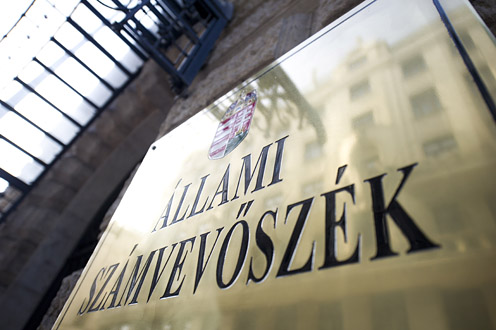
The State Audit Office (ASZ) has established that parties in the opposition alliance before the 2022 parliamentary elections were involved in illegal campaign financing, ASZ head Laszlo Windisch said on Tuesday.
Presenting ASZ’s report on its investigation, Windisch said that the parties had received over 261 million forints (EUR 671,200) illegally from abroad via the Hungary Belongs to Everybody (MMM) movement.
ASZ has ruled that the beneficiaries of the illegal funding, Democratic Coalition, Jobbik, Momentum, the Socialist Party, and LMP should pay the entire sum shared equally to the central budget within 15 days.
Windisch added that national tax and customs authority NAV were investigating MMM in connection with a further 1.4 billion forints to “clarify if that sum had been used for campaign financing”.
ASZ’s report notes that the investigation had to be undertaken because accepting donations from abroad is illegal under Hungarian law.
Windisch noted that Péter Marki-Zay, the opposition’s joint candidate for prime minister in the parliamentary elections, had said after the vote that MMM had set up an account that had been used to fund the operations of the opposition’s central campaign, including candidates.
The ASZ chief said this clearly constituted illegal campaign financing, and the audit office had reached out to MMM seeking clarification of its role in supporting the campaign.
ASZ’s investigation found that MMM and the opposition parties had set up a campaign council to coordinate their campaigns, and MMM had used funds from abroad to partially finance the parties’ billboards, leaflets and other campaign material, as well as joint events. The parties accepted the support, thereby breaking regulations against illegal party financing.
Windisch said the parties cannot appeal ASZ’s report.
The opposition parties protested ASZ’s findings, saying they suspected political reasons behind it.
Momentum leader Anna Donáth said in a statement that this was the second fine ASZ had imposed this year ahead of the European Parliament and local elections. “Their reasons are again ridiculous, and they are using show proceedings to try to stymie their opponents,” she said.
Jobbik – Conservatives said the ASZ fine had been imposed by the government as “an act of revenge for the clemency scandal that erupted in recent weeks” with the aim of stymying their rivals in the upcoming elections.
The Socialist Party said they did not acknowledge ASZ’s findings and would take legal action, insisting that there were clearly political reasons behind the office’s decision. Their statement added that if the opposition parties contested the elections together, “these kinds of attempts to undermine them could be unsuccessful”.
The Democratic Coalition said it would take “all possible legal steps” in connection with the fine. The party said it would sue the state treasury if it carried out ASZ’s decision.
Read also:
Here is what PM Orbán did not talk about in his State of the Nation speech
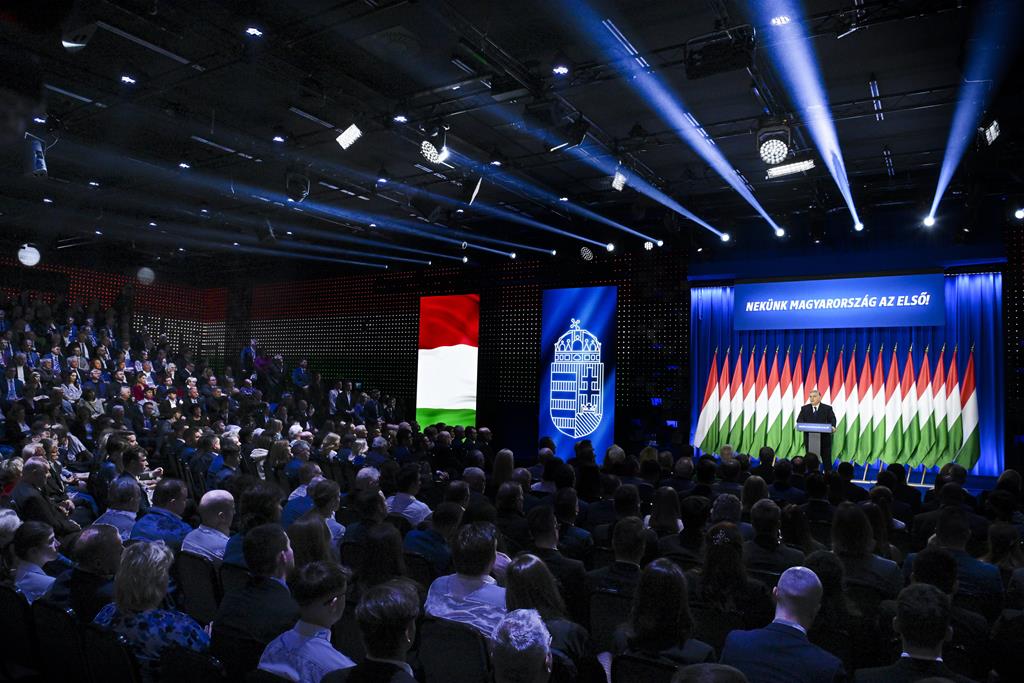
Viktor Orbán has “failed to address the cardinal question: why the accomplice of a paedophile was granted a presidential pardon,” the Democratic Coalition (DK) said in a statement issued after the prime minister delivered his annual state of the nation address on Saturday.
“The prime minister would not provide an answer, he refuses to take responsibility and will not apologise to the victims,” DK said.
Jobbik-Conservatives said in a statement it was “obvious that Hungary is in the greatest political scandal and moral crisis of the past 30 years” and Orbán should have taken responsibility for “the disgrace of the pardon case”.
The Socialist Party said Orbán had “made it clear the scandal was resolved” with the resignation of the president and of the former justice minister, while “fleeing responsibility”.
The radical nationalist Mi Hazank Movement said Orbán’s speech “depicted an idyllic Hungary that is very far from reality”. “The prime minister will not take any personal responsibility for the pardon scandal that has shaken the whole country,” the party added.
Parbeszed-Greens said they regretted that “no honest reflection took place” in Orbán’s speech. “The prime minister should have made amends for this disgusting paedophile whitewashing”. In addition to President Katalin Novák, former Justice Minister Judit Varga and Reformed Bishop Zoltan Balog “he should have admitted that he is politically responsible” for the scandal, they added.
LMP said “we still do not know why Endre K. has been granted a pardon.”
The Momentum Movement said the prime minister had “not addressed the most important questions”.
Read also:
Opposition Jobbik requests national security report on statements by former justice minister’s ex-husband

The Jobbik head of parliament’s national security committee has asked security services to prepare a report on widely reported statements made by the divorced husband of former justice minister Judit Varga, after she resigned from all her positions earlier this month.
Zoltán Sas told a press conference that “dismantling public trust in the national security services by spreading unsubstantiated rumours is unacceptable, but so is ignoring information on unlawful practices in the national security services if they are accurate.”
National security agencies have a duty to monitor all activities that might represent a risk to national security, “be it war, an economic situation, a pandemic or wave of migration”, he said. Since national security services cannot turn to the media when attacked, it falls to the committee to represent them, he added.
Read also:
Paedophilie scandal in Hungary: growing outcry against President Novák’s decision
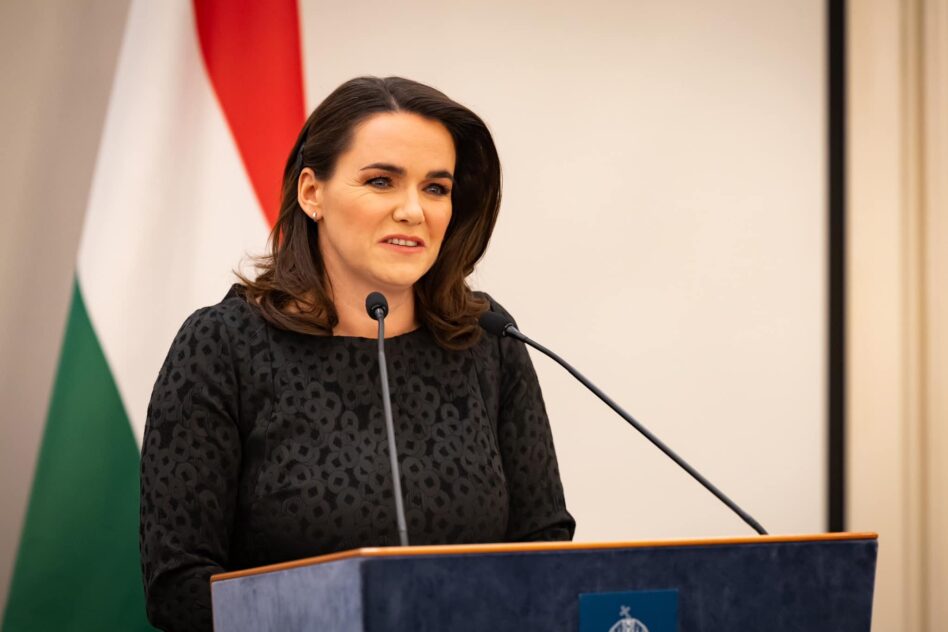
In a recent decision, Katalin Novák, President of the Hungarian Republic, granted pardon to Endre K., who aided a notorious paedophile at the Bicske children’s home in sexually abusing children. This shocking revelation, now dubbed the Bicske scandal, has ignited widespread public outrage and stirred the collective conscience of the nation.
The highly controversial case is expected to cast a shadow over Novák’s international reputation and erode public trust in her leadership. While she has exhibited unwavering loyalty to party directives in the past, this move may prove to be a misstep. The nation grapples with the hypocrisy of the situation, particularly alarming given the government’s heavy advocacy for maximal child protection in recent years.
Official response to the paedophile scandal
Novák has openly replied to the accusations levelled against her regarding the Bicske case. She vehemently denied any intent to grant clemency to paedophiles, past, present or future, during her tenure. The Hungarian President added that she’s ‘disgusted by pedophilia and considers it one of the most heinous and serious crimes’. Novák underscored her role as a vocal advocate against paedophilia, urging for stricter measures and the establishment of a paedophile registry. Moreover, Novák said that if anyone either from the government or the opposition intends to take active steps against paedophilia she will be fully supportive of their campaign, writes Index. Notably, Novák pointed out legal provisions safeguarding the confidentiality of presidential pardon explanations.
This could also interest you:
Political backlash
The political scene is in flurry of outrage. The Momentum party’s leader, Anna Donáth has reacted to the President’s actions, saying that there are pardons that prove to divide the public opinion, but this is not one of them. She asserted that releasing the individual in question back into society violates all moral codes irrespective of political alignment. Donáth expressed confidence that even the most loyal government supporters would reject such a decision if fully informed.
Echoing Donáth’s sentiments, the Jobbik party called for Novák’s resignation as reparation for her reprehensible act. They also held Judit Varga, the Minister of Justice, accountable for her endorsement of the case, advocating for her removal as Hungary’s lead candidate in the European Parliament elections.
Call to action
The MSZP and the Dialogue faction joined the chorus of dissent, decrying the government’s hypocrisy in child protection campaigns and the release of Endre K. They advocate for enhanced transparency in presidential decision-making, proposing reforms to ensure public scrutiny. Meanwhile, the Democratic Coalition pushes for Novák’s impeachment, deeming her unfit for office. According to 24.hu, this procedure is however slow and has many uncertain elements, with the initial step being the collection of parliamentary signatures.
Civil society condemnation
The Association of Social Workers, along with civil servants and the Teachers Union, issued a statement condemning the pardon of Endre K. Their stance mirrors that of the Democratic Coalition, calling for greater transparency in presidential decisions. They expressed grave concerns over Endre K.’s potential reinstatement in child protection roles and stressed the paramount importance of maintaining professional integrity and ethics in safeguarding children, free from political interference. Highlighting the chronic underfunding and societal undervaluation of child protection services, they underscored the urgent need for reform.
UPDATE
- Pedophilia scandal in Hungary: opposition party writes to Pope over presidential pardon
PM Orbán reacts, President Novák insists on shocking pardon – details HERE
Jobbik-Conservatives protests against import of guest workers

The parliamentary group of the opposition Jobbik-Conservatives party on Monday held a protest against the import of foreign guest workers to Hungary in front of the prime minister’s office in Budapest’s Castle District.
László György Lukács, the party’s group leader, said the import of “cheap Asian migrant workers” had picked up lately as the government was letting tens of thousands of guest workers into the country, where they carried out low-wage labour.
He said the government itself was partly responsible for financing the guest workers since its policies supported factories from the East setting up in Hungary, and such companies preferred to employ cheap labour from abroad instead of “valuing the well-trained Hungarian workforce”.
In effect, he added, the government was sponsoring a population exchange given that people struggling to find work in Hungary were forced to emigrate.
Meanwhile, the opposition Democratic Coalition party on Monday also expressed its support for paying Hungarian workers a proper wage rather than importing underpaid guest workers.
read also:
- Jobbik-Conservatives to field own candidate for Budapest mayor, details HERE
- Fund to protect Hungarian jobs will be established? Details HERE
Under a draft bill drawn up by the prime minister’s cabinet office, companies that employ at least sixty percent non-EU guest workers would reap generous tax breaks, Ferenc Varga, a DK politician who sits as an independent, told an online press briefing, adding that the measure was a “betrayal of Hungarians”. He said sacking a Hungarian employee to make way for a non-EU guest worker instead should be prohibited.
Fund to protect Hungarian jobs will be established?

The opposition Jobbik-Conservatives has called for a fund to be established to protect the jobs of Hungarians, a party lawmaker said on Tuesday.
Artificial intelligence is set to gain ground and “Hungary is not prepared for the challenge”, Dániel Z Kárpát told a press conference.
The “uncontrolled spread of AI” would, he said, result in the disappreance of Hungarian jobs in various fields. Some 37 percent of jobs in Hungary were under the shadow of digitalisation and AI, he added.
Kárpát said affected employees would be left stranded, so his party was calling on the government to set up a job protection fund.
“Large companies that profit greatly from AI should be forced to channel some of their extra profits into a job protection fund,” he said.
He added that Hungary should not wait for the EU in this respect because AI regulations on the continent would not be ready until 2025.
Read also:
Jobbik-Conservatives to field own candidate for Budapest mayor
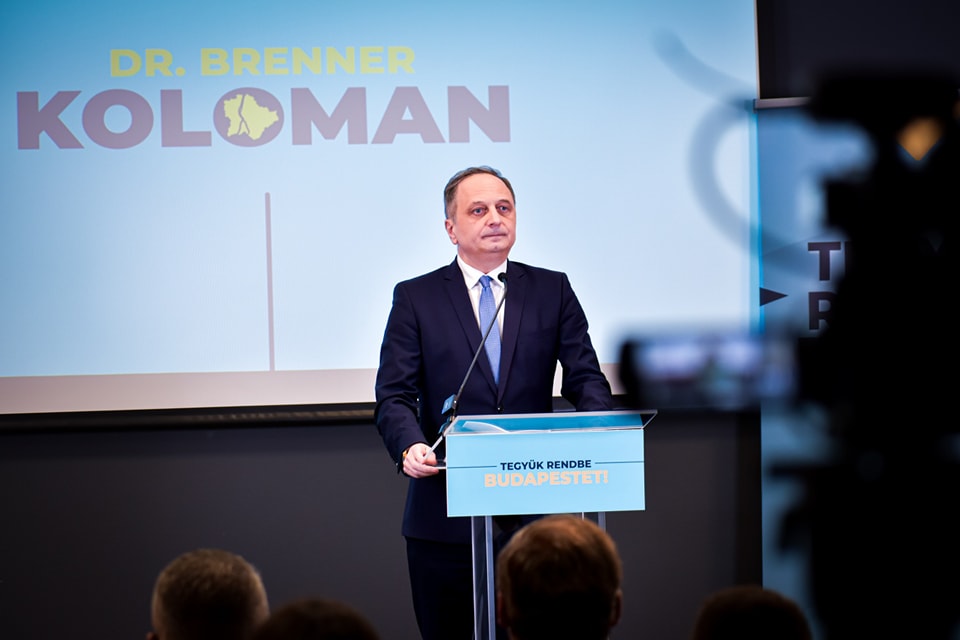
The opposition Jobbik-Conservatives party will field its own candidate, deputy group leader Koloman Brenner, for the post of Budapest mayor in next year’s municipal elections, the party’s deputy leader said on Tuesday.
“As has been shown throughout every mayoral term, a city leadership looking only in one direction is unsuccessful,” László György Lukács told a press conference, calling for fundamental municipal reform and “speaking openly about the problems that concern Budapesters”.
Brenner told the press conference that his aim was to offer “Budapesters a real alternative that is attractive” to non-Jobbik supporters as well.
Unveiling his plans, Brenner pledged measures to make Budapest’s public places cleaner, which he said was a problem “that has deteriorated a lot under the current city leadership”. He pledged reviewing the contracts with public cleaning companies and setting up “an adequate care system for the homeless”.
Brenner also pledged a tenfold increase in the number of surveillance cameras in public spaces which he said “should be used solely for protecting public order, not surveillance as such”.
As regards Budapest’s transport, Jobbik candidate Brenner said he would introduce a uniform parking system and would use revenues from parking fees to further develop the city’s public transport system. He in addition pledged to clarify rules and regulations on the use of e-rollers without delay and, if need be, ban “these life-threatening devices from Budapest”.
As we wrote earlier, Jobbik afraid of migrant ghettos in Hungary, read details HERE.
Large science universities return to state ownership?

Opposition Jobbik is calling for talks on the return of large science universities to state ownership, the party’s deputy group leader said on Monday.
Koloman Brenner told a press conference that the problem was not that universities are owned by foundations but the fact that these foundations’ boards originally included only ministers, state secretaries and people with ties to ruling Fidesz.
Even though the ministers and state secretaries have since exited the boards, it is still a violation of universities‘ autonomy that the board members have the power to influence decisions that used to belong to the universities’ senate “ever since the middle ages”, he added.
Brenner was calling for talks with universities’ elected leaders on a return to state ownership and financing “as it is common everywhere in continental Europe”.
He also called on the government to suspend the Budapest Corvinus University board because they had fired a lecturer for revealing examination irregularities.
Read also:
Hungarian opposition parties mark 1956 anniversary
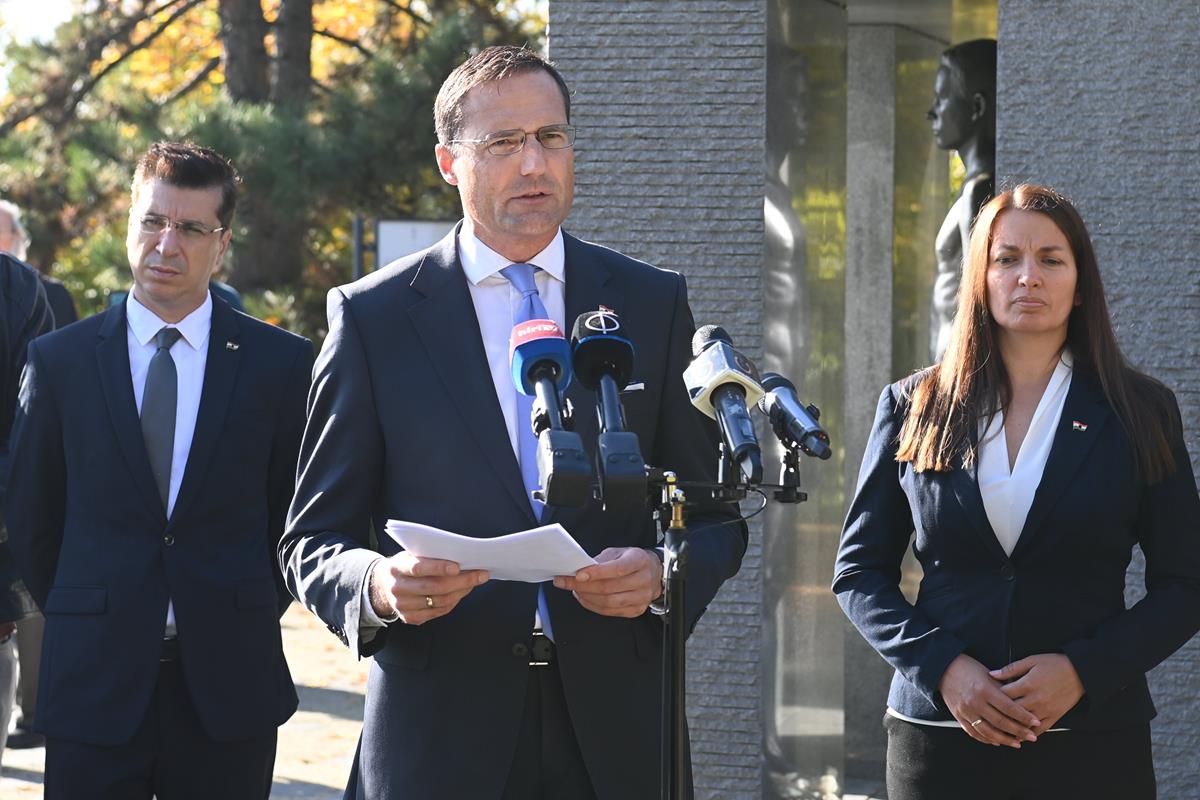
Hungarian opposition parties marked the anniversary of the 1956 anti-Soviet uprising on Monday.
Democratic Coalition
Ferenc Gyurcsány, the leader of the opposition Democratic Coalition, said at an event recorded earlier in Budapest: “October 23rd has ceased to be a joint celebration of the nation.” He said government officials and “we who preserve the [real] celebration” had marked the day in separate locations and in a different spirit.
Drawing a parallel between the present day and 1956, Gyurcsány insisted that the West had brought “the promise of a freer, more independent country”, while “Russia threatens the free peoples of Europe”. He said Hungarian powerholders “lied” by insisting the threat came from Brussels.
As we wrote today, the Hungarian foreign ministry said, the West watched with sympathy but forgot to help.
Jobbik-Conservatives
Márton Gyöngyösi, the leader of Jobbik-Conservatives, called his party “the spiritual heirs of the revolution”. Speaking at the monument of 1956 martyr Péter Mansfeld in Budapest, Gyöngyösi noted that at the founding event Jobbik had received a Hungarian flag from revolutionary fighter Gergely Pongrátz.
The party’s mission, Gyöngyösi said, remained “resistance against Communists and to topple this regime one day”.
“Today Budapest is ruled by a government that receives its orders from Moscow … and it has the same approach to young people as its Communist predecessors.”
Fidesz, he added, had imposed “closed borders, dwindling education, ridiculous wages and cheap Russian propaganda” on Hungarian youth.
Socialists
Socialist co-leader Ágnes Kunhalmi has called for joint action against the “incumbent authoritarian rule” in Hungary, and insisted that the country was lacking “democratic conditions”.
Speaking at her party’s commemoration of the outbreak of the 1956 anti-Soviet revolt in Kaposvár, in south-western Hungary late on Sunday, Kunhalmi said “those that seek to play domestic democracy in a fundamentally anti-democratic environment have failed to understand . the message of young people fighting for freedom, prosperity, and progress back then.”
The Socialist Party fights for “freedom for the country and its society, a democratic rule of law, prosperity for the general public, and social security”, the politician said.
The Socialists consider Imre Nagy, prime minister in 1956, the leader of the failed revolution, and reject the government’s endeavours to “suppress, question, or even deny his political role”, Kunhalmi said. The martyred prime minister “always stayed a leftist and his taking the responsibility and all risks clearly refute the government’s claims that 1956 was exclusively a Christian nationalist, right-wing revolution,” she insisted.
István Hiller, the head of the party’s national board, said his party would support local governments that can “promote the interests of locals with assistance by the state”.
“We don’t want just elected representatives, we want self-governance, free cities, places for the people to meet freely, free deputies that will present their ideas to the electorate and then implement the will of the voters,” Hiller insisted.
“It is not acceptable that the gap between poor and rich is opening terribly and there is hardly any opportunity for social advancement, much less than we believed and wanted in 1989,” he said.
On the subject of the war in Ukraine, Hiller said “Russia has been the attacker, the agressor, and we cannot take sides with any other party than the one attacked … we want peace, but peace that will do justice to the attacked side,” he said.

